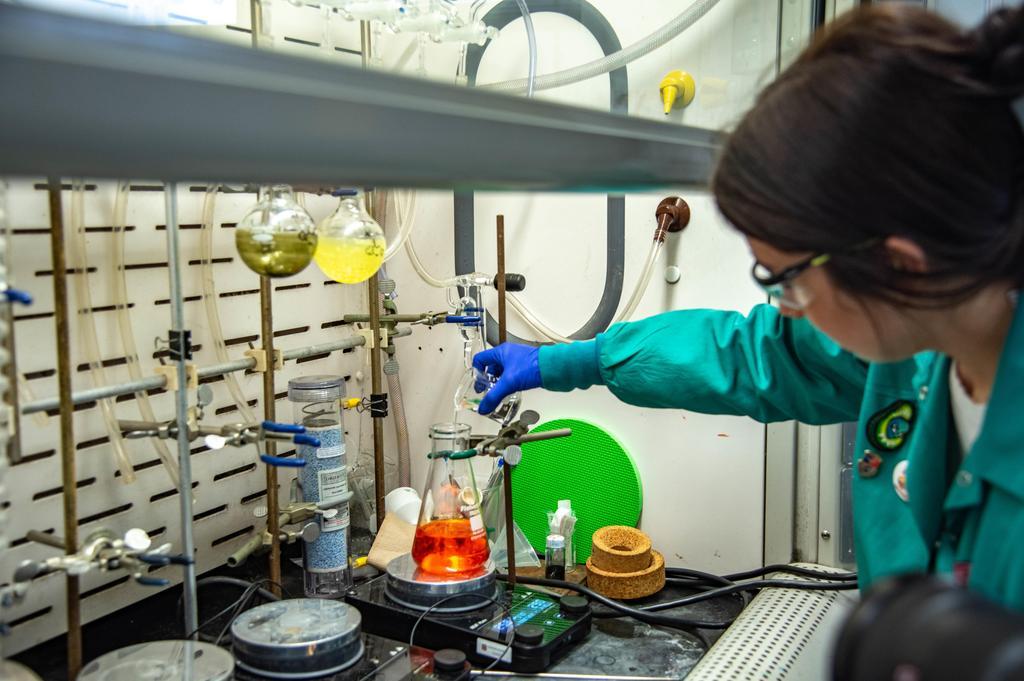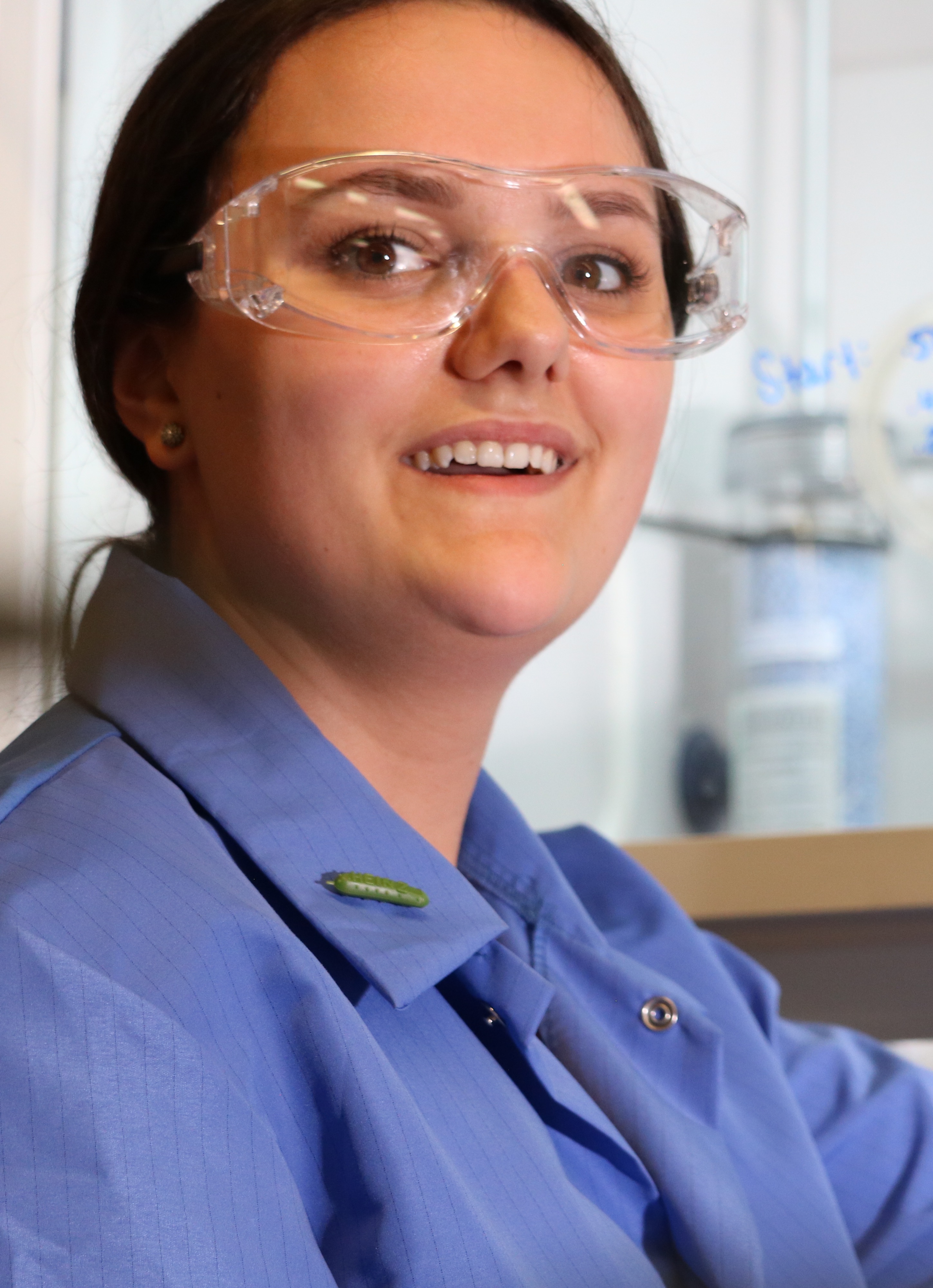Chemistry
Pursue your passion for chemistry our ACS-Certified B.S. in Chemistry program. As a student in our program, you will embark on an exciting educational journey, earning a Bachelor of Science in Chemistry degree that is recognized by the American Chemical Society (ACS), a prestigious accreditation that ensures the highest standards of excellence in chemical education.
Our comprehensive chemistry program offers a carefully crafted curriculum that encompasses a wide range of chemistry disciplines. Dive into the fascinating realms of organic chemistry, inorganic chemistry, analytical chemistry, physical chemistry, and biochemistry, gaining a deep understanding of the fundamental principles and theories that govern these fields.
Through a combination of classroom instruction, hands-on laboratory experiments, and engaging coursework, you will develop essential skills in chemical research, analysis, and synthesis. Explore the intricacies of molecular structure, unravel the complexities of chemical reactions, and delve into the world of chemical bonding and kinetics. Additionally, you will have the opportunity to specialize in areas such as polymer chemistry, environmental chemistry, forensic chemistry, or pharmaceutical chemistry, tailoring your education to align with your career aspirations.
Our program emphasizes practical experience, offering numerous laboratory experiments that provide real-world application of theoretical concepts. Engage in cutting-edge research projects, working alongside experienced faculty members who are at the forefront of their respective fields. Develop expertise in chemical analysis and synthesis, honing your ability to manipulate and understand the properties of various substances.
Learning Outcomes
- Achieve a Strong Theoretical Foundation in Chemistry - Students will acquire a deep understanding of the core concepts of Organic, Biochemistry, Inorganic, Physical and Analytical Chemistry, preparing them for diverse applications of chemistry in academia, industry, and professional fields. This understanding will be supported through learning the basics of related scientific disciplines, including biology, physics and mathematics.
- Develop Proficiency in Practical Laboratory Skills in Chemistry and Biochemistry - Students will develop and demonstrate practical laboratory skills, including experimental design, data analysis, and safe laboratory practices, essential for careers in research and industry.
- Learn and Apply the Scientific Method to Analyze Data – Students will be able to apply the scientific method introduced early in the curriculum to analyze chemistry experimental data both in the classroom setting as well as in the research laboratory setting. They will understand the role of integrity and ethics in science.
- Communicate Scientific Outcomes Effectively Through Oral and Written Methods – Students will acquire the skills to be able to effectively disseminate their chemistry experimental results or those from the chemistry literature, both through oral presentations and written documents.
- Apply Chemical Knowledge to Solving Original Research Problems – Students will be able to apply their acquired chemistry knowledge to solve original research problems, culminating in the capstone laboratory project and for some the writing of a research thesis in chemistry.
Program Information
The Bachelor of Science in Chemistry ACS-certified degree is certified by the American Chemical Society. This program offers a broad-based and rigorous chemistry education. Students seeking a higher level of respect and recognition in their field of study should focus on an ACS-Certified Degree.
Program Type
Major
Degree
Bachelor's
Academic Department
Chemistry and Biochemistry
Duration
4-year
Required Credit Hours
123
The Student Experience
Prepared For Anything
Graduate Education
Our program sets the stage for further academic pursuits, serving as an excellent stepping stone for graduate studies in chemistry or related disciplines. Expand your knowledge, explore advanced research opportunities, and contribute to groundbreaking discoveries in the field.
After Duquesne
Upon completion of the ACS-Certified B.S. in Chemistry program, a wide array of exciting career opportunities awaits you. Unlock doors to the industry as a chemist, researcher, or scientist in fields such as pharmaceuticals, materials, environmental science, or forensic analysis. The demand for chemists in various sectors continues to grow, providing a strong foundation for a successful and fulfilling career.
Students are required to take 528 Polymer Science and one semester of CHEM 490W Undergraduate
Research. All prerequisites must be met with a C or higher. Students must take four advanced electives. Two electives must be chemistry or biochemistry
electives. The remaining two electives may be chemistry, biochemistry, biology or
math electives from the approved lists.Suggested Course Sequence
Spring Semester (17 credits)
Spring Semester (16 credits)
Spring Semester (14 credits)
Spring Semester (12 credits)
Elective Offerings



